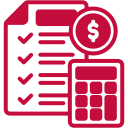How to Save for a
Down-Payment While Renting:
Understanding Down Payments
A down payment is the initial sum of money you pay when buying a home for sale in Savannah TN. It impacts your loan amount, mortgage rates, and the need for private mortgage insurance (PMI). A bigger down payment can get you better loan terms and lower monthly payments.
Challenges of Saving While Renting
Financial Pressure
Renters often struggle with high monthly rent payments, which can take up a big part of their income. Without owning a home, it's harder to save for the future.
Budgeting Challenges
Renters find it hard to balance rent with other expenses like utilities, groceries, and debt. This can make saving for a down payment tough, as immediate needs often come first.
Step-by-Step Saving Strategies
Creating a budget is the cornerstone of any saving plan. Here are some tips to help you budget effectively:

Track Your Spending:
Keep a record of all your expenses for a month to understand where your money goes.

Categorize Expenses:
Divide your expenses into categories such as ‘needs’, ‘wants’, and ‘savings’.

Prioritize Savings:

Set Specific Goals:
Determine how much you need for a down payment and break it down into monthly saving targets.

Use Budgeting Tools:
Consider using apps or spreadsheets to keep your budget organized and accessible.
Cutting Costs
Reducing monthly expenses can free up more money for your down payment. Here are some ideas:
Downsize Your Rental:
If possible, move to a less expensive rental to save on monthly costs.
Limit Discretionary Spending:
Cut back on non-essential items like dining out, subscriptions, or luxury goods.
Shop Smart:
Look for discounts, use coupons, and buy in bulk to save on groceries and other necessities.
Reduce Utility Bills:
Save on electricity and water by being more efficient and mindful of your usage.
Boosting Income

Take on a Side Gig:
Freelance, drive for a ride-share service, or find part-time work that fits your schedule.

Sell Unwanted Items:

Invest in Passive Income:

Ask for a Raise:
If you’re due for a performance review, prepare a case for a salary increase.
Frequently Asked Questions
While it’s possible to use retirement savings for a down payment, it’s important to consider the potential penalties and the impact on your retirement goals. It’s often better to explore other saving strategies first.
